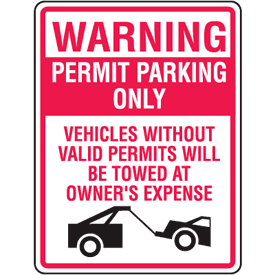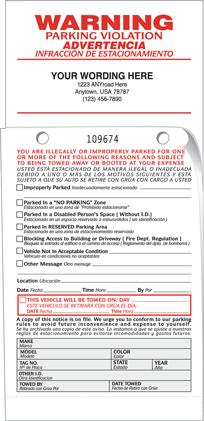Highlights from the 2014 Income Property Management Expo
Pasadena, CA – March 25, 2014

- 2014 Southern California Income Property Management Expo – Pasadena, CA
We hope to see everyone back in Pasadena in 2015!
www.IncomePropertyExpo.com
Pasadena, CA – March 25, 2014

We hope to see everyone back in Pasadena in 2015!
www.IncomePropertyExpo.com
 Apartment owners, multifamily executives, and property managers are busier today than ever. Unfortunately, there are still only 24 hours in any given day at last check. This leaves many multifamily executives looking for ways to streamline some of the responsibilities within their businesses in order to have the time and focus to take care of other important job functions.
Apartment owners, multifamily executives, and property managers are busier today than ever. Unfortunately, there are still only 24 hours in any given day at last check. This leaves many multifamily executives looking for ways to streamline some of the responsibilities within their businesses in order to have the time and focus to take care of other important job functions.
Using call centers for leasing apartments is one way to do this. However, there are a few distinct pros and cons to keep in mind before deciding if you want to take your business in this direction.
Advantages of Using a Call Center for Leasing Apartments
Businesses today are continuously seeking cost-effective alternatives to the old way of doing things. And multifamily investors and executives are no different. Using a call center for leasing apartments offers the multifamily executive an alternative solution with marked benefits.
Specialization. Leasing agents wear many hats within their respective apartment communities. Many of these hats take them out of the office — and away from telephones serving people who are hot prospects looking for apartments now, or those who are already members of the apartment community. On the other hand, call center agents specialize in their roles, which can be a huge advantage. Call center agents have one responsibility, primarily. While they certainly answer prospective tenant questions, their main goal is to “soft sell” the apartment community they represent — and they become experts at doing so.
Free up valuable time. Multifamily Executive recommends hiring call center leasing agents to free up your valuable time, or that of your staff, to handle other on-site needs, such as taking care of existing tenants and prospects. In addition, someone else handles the training of call center staff members. This means you’re not dedicating valuable time bringing another team member up-to-speed and can devote your time and attention to your core competencies and pursuits that can bring in additional revenue, such as marketing and market research.
Preference of prospective tenants. People like to hear the voice of another person on the line rather than a recorded message or busy signal. Call center leasing agents are a lot more than additional staff members to pick up the slack when business picks up. They’re the warm body on the other end of the phone that prospective tenant callers respond to. They’re a live person who can answer questions, point out benefits, and add depth to your existing leasing team — even if they never set foot on the actual properties they’re helping sell.
Avoids missing prospective tenants. Call center leasing specialists also play an important, if not vital role, by ensuring that important calls and prospects aren’t missed before they roll over into voicemail. Many, if not most, people hang up when calls go into voicemail. Call centers are able to capitalize on these leads even if the lead calls after hours or calls at a time when an on-site staff member is unable to answer the phone.
Availability. The bottom line is that call center agents are simply available at times when it’s not always cost-effective to have an employee on hand waiting on the phone to ring. The world doesn’t operate on bankers’ hours anymore. If you truly want to make a lasting impression with prospective tenants, have a live person answer the call when tenants that work night shifts call in.
Cost. Investing in call center leasing agents can save apartment owners money over hiring full-time staff members and investing in infrastructure, equipment, warm bodies, and phone lines to do the job call center leasing agents do.
Disadvantages of Using a Call Center for Leasing Apartments
Call center leasing is not without its considerations. Take a look at some of the drawbacks of using a call center for leasing apartments.
Cost. The biggest of which, according to Multifamily Executive, is the cost. For some smaller apartment communities, it’s simply too prohibitive to have on-site staff and off-site call center staff as well. However, many call centers have created packages with different price points to mitigate this so that it’s easier for even small communities and to bear the costs.
Transparency. There may come a time when a prospective tenant asks to see the person they’ve spoken with on the phone. And some consumers may be disappointed they aren’t able to meet with the leasing agents they’ve spoken with on the phone when they visit the apartments.This lack of transparency can be a drawback, however there are ways around it. Simply train your team to inform them that the person they spoke with on the phone is an important part of your team that works off-site in a different facility.
Communication Issues. If call center agents have an accent, as might be the case if your call center for leasing apartment is outsourced out of the country, prospective tenants may have trouble understanding what is being said to them. You can circumvent this by carefully screening the company that you outsource this task to.
Lack of dedication and focus. When call center work for leasing apartments is outsourced to a third party provider who may have other client companies, outsourced call center agents may not be fully dedicated or focused on your company. In other words, their dedication and attention can be divided among a number of client companies.
Quality of calls. While not always the case, outsourcing call center for leasing apartments can lead to lower quality of calls, particularly when calls are not monitored and improvements are not made to underperforming call center agents. In the long run, poor prospective tenant satisfaction from calls responded to by call center agents can lead to reduced revenue opportunities. Be sure to hire a call center for leasing apartment that monitors calls, provides reviews to its workers, and takes pride in quality.
Do Call Center Leasing Agents Help to Generate Revenue?
In instances where staff members are missing a large volume of calls regularly, call center leasing agents absolutely do generate revenue, first and foremost, by freeing up the time of on-site leasing agents to seal the deal, reports Multi Housing News. They also help by setting more appointments simply because the call center is available after hours and at times when on-site staff members are busy seeing to other needs. Call center leasing agents allow multifamily owners to increase revenue by renting more apartments, streamline marketing endeavors (cutting expenses as a result), and increase profits with greater efficiency.
That said, there are drawbacks, like those listed above, along with the benefits. Weigh the pros and cons to decide whether investing in a call center for leasing apartments is a cost effective move for your apartment leasing needs.
Are you using a leasing call center? Do you have something to contribute to the conversation? Please feel free to leave your valuable comments in the section below.
 |
Justin Alanis | Company Website | LinkedIn Connect |
Justin Alanis is the Co-Founder and CEO of Rentlytics Inc. Rentlytics is based in San Francisco, CA providing deep analytics for apartment property owners and managers. View and analyze property operational and financial metrics more effectively and identify issues. |
Proactive vs. Reactive Efforts

Resident service has two sides. Reactive service is delivered “after the fact,” typically when a resident has a special service request or complaint, or is simply unhappy or dissatisfied. It’s a concept that we are, unfortunately, all intimately familiar with. On the other hand, proactive service begins even before the future resident walks in the door. It’s composed of all the steps we take to ensure that we’re fully prepared to do “whatever it takes” to fulfill the needs and wants of our residents both prior to leasing and after move-in. This is quality apartment management and leasing and includes what I like to call “setting the stage.”
“Setting the stage” is one of the best examples of proactive service in action, and it involves making the leasing experience as comfortable as possible for the future resident. This is where the details matter. Reduce the time it takes to fill out the application (after all, banks approve $20,000-30,000 loans based on a name, address, place of employment, social security number, and telephone number. Why can’t we?). Don’t just stop there… pare down processing time whenever and wherever you can without sacrificing the value of the leasing experience, and prove to your future residents that you value their time as much as they do. Polish the appearance of both your leasing center and staff so that the environment is pleasant and visually appealing, and creates the all-important positive first impression that your residents will carry throughout their relationship with you and your community. The entire leasing experience should begin wit h the message, “We’ve been waiting for you!” and last well beyond “Welcome to your new home!”
Proactive service and retention does wonders for a community’s bottom line. The more special details you incorporate into this proactive approach, the better! Consider such niceties as thanking residents for coming in, even when they have a complaint, or thanking them for simply paying their rent on time.
Value-Added Service
For the longest time,especially when I was first getting started in the apartment industry, “value-added”seemed to be everyone’s favorite buzzword. Every one of my supervisors told me that it was the kind of service we were supposed to be providing to our residents, but no one ever stopped to explain to me what it meant. Frankly, I’m not certain they fully understood themselves. In hindsight, I think the term entered our industry at a bit of a disadvantage.

Way back when our idea of resident service was collecting rent checks and dispatching “maintenance men”, it would have been a stretch for us to grasp the concept of value-added resident services as much more than providing the bare minimum of courtesy that’s expected of us today. As the concept of customer service evolved, and our residents’ expectations began to grow with each instance of great service that they encountered in their day-to-day lives, we finally began to get the hint and expanded our own service offerings accordingly. As a result, I believe we came to think of providing value-added service as a means of “keeping up with the Jones’s”– the Jones’s being not only our competition, but every other retailer and service provider who was out there serving our residents well and raising their expectations in the process.
Here’s the reality check.Value-added service doesn’t mean simply living up to our residents’ expectations–it means going the extra mile. One of my favorite examples is the”Baker’s Dozen.” You pay for twelve cookies and receive thirteen. If you really want to compete, you throw in a couple more. It’s important to know that value-added doesn’t just mean giving something away for free. Where added value can be clearly demonstrated, the customer is most often willing to pay a bit extra for it. If you offer custom upgrade options to your apartment homes at a fair price; you’ve seen this principle proven time and time again; ditto for that special location with the super view and higher rental rate.
Another of my favorite examples of value-added resident service is the trend toward policies that clearly state: “Resident satisfaction is more important than company policy.” Not only does this empower employees to solve problems on the spot (one of the key factors to great internal retention), but it also helps to guarantee all of the nice things that happy residents bring, like renewed leases and referrals. Conversely, residents who are either overtly told or treated as though company policy stands between what they want and what your team can provide are not likely to stick around for long, if at all. Referrals? Don’t hold your breath.
It’s important to realize that a service needn’t be new in order to be value-added. Take a close look at each of the services you currently offer. A new twist here and an enhancement there can make a world of difference in how your residents perceive the level of service they receive.
Let me close this post by with sharing my feelings towards residents when I was on-site.
 I had a built-in feeling or reaction towards every single contact I had with a resident. Most of those contacts were not pleasant because I was always dealing with distressed communities. No matter how busy I was, and I was normally very, very busy. I stopped and gave the resident I was in contact with 110% of my attention, put a smile on my face and focused on making that person feel like the most important person in the world. Each contact was followed up with a hand written note (very impressive today in the electronic world) thanking them for bringing what ever new challenge I was presented with to my attention. These notes were delivered at the end of my day as I walked the community. I always felt that walking the community at the end of the day was another resident retention technique. Letting the residents see me walking the community showed that I had a personal interest in the community. The residents would never see me driving around in the available golf cart unless I was with a future resident or service technician. Managers, give it a try you will be amazed with the results of this simple and cost free way to endear the residents of your community.
I had a built-in feeling or reaction towards every single contact I had with a resident. Most of those contacts were not pleasant because I was always dealing with distressed communities. No matter how busy I was, and I was normally very, very busy. I stopped and gave the resident I was in contact with 110% of my attention, put a smile on my face and focused on making that person feel like the most important person in the world. Each contact was followed up with a hand written note (very impressive today in the electronic world) thanking them for bringing what ever new challenge I was presented with to my attention. These notes were delivered at the end of my day as I walked the community. I always felt that walking the community at the end of the day was another resident retention technique. Letting the residents see me walking the community showed that I had a personal interest in the community. The residents would never see me driving around in the available golf cart unless I was with a future resident or service technician. Managers, give it a try you will be amazed with the results of this simple and cost free way to endear the residents of your community.
Actions:
What other ways can you be proactive in the service you provide to your residents? What can you do for them before it needs doing, so they will want to continue living in your community? Write down ideas, add them to your plan, and then try to implement one or more of these fresh ideas every month. Your community’s bottom line will be rewarded with the results.
Take 10 minutes and walk the community at the end of every day. Give it a try for one month and you will be amazed at what you see, learn and the difference it makes with your residents. PLUS imagine the health benefits you will receive!
By: Rommel Anacan | www.RelationshipDifference.com
 Some of my favorite things to read online are the things people say when they’re commenting on stories! I am always amazed at how ugly, mean-spirited and downright awful some people can be when they communicate behind a wall of anonymity provided by the computer.
Some of my favorite things to read online are the things people say when they’re commenting on stories! I am always amazed at how ugly, mean-spirited and downright awful some people can be when they communicate behind a wall of anonymity provided by the computer.
Here are some comments I found on a few sites:
You are a FOOL–with a LOT of company.
3 crap articles in a row. You’re on a roll Doyel.
Obviously Ravens fans can’t speel, no surprise.
Do you think any of these people would actually make those comments if they were standing in front of the people they directed them to? I don’t. (And BTW-I love that the comment about someone not being able to spell has the word “spell” spelled wrong.)
When I was the customer care manager of a property management company in Southern California, I discovered very quickly how making a phone call could be the best thing you do in resolving a complaint! I usually had a practice of communicating with people in the same way they first contacted me, unless they told me otherwise. So of course I loved it when people emailed me or wrote me a letter because I could respond back without having to actually talk to them! (Admit it, you feel the same way!)

But sometimes I’d notice that an issue that should have been resolved would keep going; or sometimes I’d see that my email back would trigger another email that seemed more angry and frustrated and the first, which of course, was not my goal!
Here is the funny thing…when I’d see these escalated emails or letters, I would then pick up the phone and reach out to the customer personally. In a majority of the cases the residents would typically be very nice and sometimes apologize for how they communicated to me in their writings.
It seems that the one-on-one connection was often enough to defuse a customer’s anger. Sure, I often had challenges that still needed to be resolved, but I found that residents were often more willing to work with me and see my point of view when I spoke with them personally, instead of relying on email or letters. I can’t count how many I’ve spoken with who thanked me for calling them and working with them, even when I wasn’t able to give them what they wanted!
Why You Should Consider Calling Instead of Writing
It’s Easier to Sound Like a Jerk Over Email

This one works both ways. I’ve seen many emails from associates to residents that made me cringe and fear for the job security of the associate who wrote them! As I talked about earlier, when you are safe and secure behind your desk, it’s easier for you to say something you shouldn’t say, or to say it in a way that you shouldn’t. It’s also easier for your upset resident to do the same thing.
When you are talking in person (or on the phone) there is a tendency for people to want to find some type of common ground, because not everyone is comfortable being combative or aggressive in person.
It’s Easier to be Misunderstood Over Email
There is no way around this one, letters and emails often read harsher than they are intended. This is why you’ve probably heard that you should never use email to correct or discipline or chasten someone. The other issue with written communication is that it can be looked at and stewed over again and again, further inflaming an already upset resident. If you must send an email read and re-read it from the customer’s point of view~and have someone else (who is generally level headed) to read it for you if you have any doubts!
Personally Connecting is Powerful
 While technology allows us to communicate in every way possible, it also seems to isolate us from people as well. In today’s world where we text more than we call, where we Facebook more than we meet for coffee, there is something emotionally powerful when you pick up the phone and say,
While technology allows us to communicate in every way possible, it also seems to isolate us from people as well. In today’s world where we text more than we call, where we Facebook more than we meet for coffee, there is something emotionally powerful when you pick up the phone and say,
“Hi Roger. This is Kimberly from the Quail Run office. I just got your email and I am so sorry about your experience and wanted to talk to you right away about it…”
Before you click on the “send” button, would you be better off picking up the phone instead?
Rommel Anacan is the president of The Relationship Difference; a corporate training, motivational speaking and consulting firm in Orange County, California. He is a multifamily industry veteran, having worked at all levels of the industry from onsite to corporate, where he developed a reputation for tackling common challenges in an uncommon way. For more information visit his website at www.RelationshipDifference.com
By: Nick Frantz
I once had a boss who told me it was my job to make sure he was never surprised. I thought that was odd, but over time I realized it was brilliant… because nobody likes a bad surprise.
When it comes to student housing inspections, it’s likely that nothing would surprise your team. But your inspection team is probably not your major concern. It’s your student residents—and their parents— that should not be surprised.
Housing inspections are animosity-building opportunities. It’s human nature; nobody likes to be “inspected.” Just the idea puts student residents on the defensive. And if poorly executed, students end up feeling that their privacy has been violated… and parents end up surprised by an unwelcome fine.
Communications are the key to taking the edge off the inspection process. Here are five tips to help you turn a relationship strain into an organizational gain.
1. Use a reliable means to notify. Inspections should not be a surprise. Most states, municipalities and universities require that you give advance notice. But that doesn’t mean that students will actually receive advance notice. Posting paper notices doesn’t work. Some may actually get read, but they’re often removed before everyone gets the message. (Does anyone ever pass that information on to their parents?) Dates and times are easily forgotten. And it can take a lot of time to make the rounds manually posting notices.
Use the communication method your residents and their parents prefer: voice and text messages to cell phones, email addresses and social media sites. Everyone gets and reads text messages. Plus, they conveniently provide a written record for later reference. A message notification service makes it fast and easy to notify all your contacts with one simple message. Use it to send an initial announcement and then send a reminder notice, too. Some services provide automated translations and documentation that shows your messages were received.
2. Set expectations. It’s a fact, people aren’t happy when their expectations are not met. Compile and publish a list of items that are not permitted (e.g. candles; flammable substances; items hanging from sprinkler heads, overloaded extension cords; blocked exit maps; items left in hallways and stairwells; etc.) Make your rules short and simple. You want them to be read. If possible, make your inspection list available.
3. Tell them why. Publish a statement that explains the rationale for inspections: legal, safety, quality of life, resource management, etc. Make it short and easy to read and understand. Include a list of frequently asked questions and answers. For example:
4. Eliminate the “them versus us” factor. Students are heavily engaged with social media building online communities. Make safety and resource management a community-wide effort within their residential community. Or launch a team initiative with teams by building or floor striving for the highest score. Using technology, such as a message notification service positions you as part of the community. And it also supports a “green” community initiative by eliminating paper mailings and flyers.
5. Consider incentivizing a perfect inspection. Free stuff is good and it doesn’t have to drain your budget. Free pizza, gas cards, iTunes. Who doesn’t love an immediate, tangible reward? If volume is a concern, consider a drawing for five, ten, twenty winners.
You and your staff work hard all year to make your property a safe and desirable place to live. Attracting and keeping student residents takes an ongoing commitment, lots of time and lots of effort. It’s about more than just your property. It’s also about building relationships. Don’t let inspections threaten your hard-earned relationships. Use a proactive communication plan to position them as a legal and practical necessity that promotes a safe and healthy quality of life.
For more information regarding resident communication solutions please visit www.onecallnow.com, or call (877) 698-3262 to find out how our text, email and voice messages can work for your community.
______________________________________________________________________
 Nick Frantz is the National Sales Manager for Property Management Solutions at One Call Now, where he has worked since March 2011. He specializes in Property Management solutions – commercial and residential – assisting in communications between property managers and staff/residents. Nick holds a Bachelor of Science degree from Miami University.
Nick Frantz is the National Sales Manager for Property Management Solutions at One Call Now, where he has worked since March 2011. He specializes in Property Management solutions – commercial and residential – assisting in communications between property managers and staff/residents. Nick holds a Bachelor of Science degree from Miami University.
Apartment News Publications Inc. is teaming up with the Income Property Management Expo to provide Apartment Owners/Managers & Commercial Property Management Companies with tools for efficient, cost effective management, operation and maintenance of their communities & facilities!


Southern California Attendee Information:
This expo will host FREE seminars throughout the day addressing CA Energy Efficiency Programs, Landlord Legal Updates, Tax Code & 1031 Exchanges, Property Maintenance and more! The goal of the Expo is to provide attendees with the opportunity to network with other industry professionals while enjoying fine food tastings, the PGA Experience, Luxury Car Display & Test Drives, raffles & giveaways and the expo floor which will have over 100 exhibitors!
To learn more about the Income Property Management Expo, how to attend for FREE, or learn how to reserve a booth for the Expo Floor, visit IncomePropertyExpo.com!
By: Nick Frantz | OneCallNow.com
 I don’t know a property manager who doesn’t grapple with parking issues. At best, they’re a hassle. At worst, they threaten resident safety, satisfaction and retention. They can even send you to court.
I don’t know a property manager who doesn’t grapple with parking issues. At best, they’re a hassle. At worst, they threaten resident safety, satisfaction and retention. They can even send you to court.
Towing may alienate a resident… but failure to act on a parking problem could alienate many residents. The best solution is a proactive approach that maximizes compliance and minimizes your need to have to make the tough decision. Here are seven tips to help ease parking woes on your property.
1. Understand the parking and towing laws and ordinances in your state and in your municipality.
If you don’t already know the laws, an Internet search should yield results. Illegal towing can do more than damage resident relationships. It can be costly. Some states allow the court to award loss of use damages for the illegally towed vehicle. Residents have to prove their case. But win or lose, it’s going to cost you time and money.

2. Have proper legal signage.
Posting parking permit and restriction signs on your property is one of the most important actions you can take to ensure and enforce compliance. With effective signage, residents, visitors, staff and vendors should never have any question about where to park.
3. Clearly mark the parking lots and curbs.
Sometimes signs disappear, but parking lot stripes and curb paint is permanent. Mark restricted parking areas as clearly as possible; leave nothing to question.
4. Create, publish and distribute a clear, well-defined parking policy.
Your policy should spell out—and itemize—exactly:
If there are seasonal issues in your area, such as snow or flooding, send timely reminders that reiterate the parking policies and procedures.

5. Review your parking and towing policies with your snow removal and towing vendors.
Make sure they understand that only authorized personnel from your staff can request that a vehicle be towed.
6. Personally address parking issues with problem residents.
Some parking infractions aren’t as defiant as they may seem to you or to other residents. When parking issues arise, one-on-one notices are far more effective than blanket reminders. It doesn’t have to be a nasty confrontation. Stay calm, refer to your parking policies and rules, and make sure the resident has a copy. Keep a record of your resident contact with the date, time and content.
7. Communicate regularly and always document.
Managing your property is your job. But your residents have their own jobs, busy—often hectic—lives, and lots on their minds. Make sure your parking rules don’t slip their minds. Proper signage, marked parking spaces and curbs, a published policy, personal reminders and community-wide announcements all work together to minimize slippage.
It’s important to document all your parking compliance efforts. Take photos of your signage, parking lot, curb markings and any instances of policy violations. Keep a record of all your communications to your residents, whether community-wide or one-on-one. Your documentation should show dates, times, and message content. It should also confirm that your residents received your communications. If a conflict or legal issue arises, all of these will work in your favor.
The name of the game here is to maximize parking compliance and minimize towing instances. It takes a proactive approach, vigilance and a commitment to regular communications with your residents.
For more information regarding resident communication solutions please visit www.onecallnow.com, or call (877) 698-3262 to find out how our text, email and voice messages can work for your community.
______________________________________________________________________
 Nick Frantz is the National Sales Manager for Property Management Solutions at One Call Now, where he has worked since March 2011. He specializes in Property Management solutions – commercial and residential – assisting in communications between property managers and staff/residents. Nick holds a Bachelor of Science degree from Miami University.
Nick Frantz is the National Sales Manager for Property Management Solutions at One Call Now, where he has worked since March 2011. He specializes in Property Management solutions – commercial and residential – assisting in communications between property managers and staff/residents. Nick holds a Bachelor of Science degree from Miami University.
By: Rommel Anacan | The Relationship Difference

Have you ever heard the statement, “Customer service would be easy if it weren’t for those customers?” Sometimes that is just too true, isn’t it?
After all we know that sometimes residents:
The challenge that you face is even if a complaining resident is all of the above, you still have to deal with the situation don’t you? In other words, the fact that a resident may be all of the above doesn’t mean that you can just brush off their complaints. Well you could try but then you still have ‘Harold’ standing in the middle of the leasing office wondering why he can’t “speak to the manager!”
So what can you do…or what can you encourage your teams to do to manage these situations? After being in contact with thousands of people during my career, both onsite and at corporate, I have isolated FOUR effective things that people can do when someone complains.

One: Help the customer feel important
The most important “people-skill” that I believe all of us should learn is how to make other people feel important. If you are able to make an unhappy resident feel important, you will go a long way towards resolving any issues, even before you get to resolving the issue.
I cannot tell you how many times I spoke with people who just needed to vent and feel as if they were important enough to be heard. And even when I couldn’t give these people what they asked for, I still got lots of “thank yous” and even some apologies after I took the time to make sure they felt important.
Two: Remember it’s not a battle
One of the most common mistakes that associates make is approaching a customer complaint as if it were a battle to be won or lost. How many times have you seen this when you’ve lodged a complaint with a company? Don’t you often want to say, “Look I’m not the enemy here, I’m just unhappy about this!”
A battle with a resident is battle you cannot win, even if you’re right. And the issue shouldn’t be about trying to prove who is “right” and who is “wrong” but how the issue may be resolved.
And the more you fight with a customer, the less important you make them feel . . . which means they will continue to do what they have to do to prove they are important!

Three: Lose the snark
Four: Use some warmth
When someone has a complaint, she often braces for “impact.” In other words, she expects the associate may give her some grief (especially if the resident secretly knows she was in the wrong), so she is prepared to dish it right back.
Remember that scene in the movie Top Gun when one of the pilots says, “I’m going to guns!” An upset resident is often prepared to go to guns…so when an associate fires a round of snark, the resident is prepared to pull the trigger.
Not the best way to diffuse a situation, huh?
When you’re genuinely warm and sincere with a customer, that can immediately diffuse things. I mean, how can someone argue with, “I’m so sorry. I see that we really fell short and I’d love to see what we can do to help you.”
 Five: Look for solutions
Five: Look for solutions
As I talked about earlier, associates often see these situations as battles to be won; so the search for solutions takes a back seat to putting the customer in his place. But the truth is, there are always solutions to be found aren’t there?
Sure, sometimes the solutions are not what the customer wanted initially, or what associates were able to do initially…but there are solutions everywhere. You just have to be willing to look for them.
_______________________________________________________________________
 Rommel Anacan is the president of The Relationship Difference; a corporate training, motivational speaking and consulting firm. His passion is helping people succeed by helping them improve the quality of their relationships. He is a multi-family housing veteran, having worked at all levels of the industry from onsite to corporate, where he developed a reputation for solving common industry challenges in an uncommon way.
Rommel Anacan is the president of The Relationship Difference; a corporate training, motivational speaking and consulting firm. His passion is helping people succeed by helping them improve the quality of their relationships. He is a multi-family housing veteran, having worked at all levels of the industry from onsite to corporate, where he developed a reputation for solving common industry challenges in an uncommon way.
You can reach Rommel at www.RelationshipDifference.com and on Twitter @rommelanacan
By: Rommel Anacan | The Relationship Difference
If your employees answer phones onsite with some variation of these greetings:

“It’s a GREAT day at Quail Run Apartments!”
“It’s a BEAUTIFUL day at The Enclave!”
“It’s an awesome morning at Eagle Creek. Home of world-class service, 24 hour apartment maintenance, Satisfaction Award winner for 3 years running, fresh-baked cookies, and the best coffee outside of Seattle…!”
By: Nick Frantz
 In October, Hurricane Sandy slammed the east coast and wiped out entire communities. Sandy, the largest Atlantic mega storm on record, caused 100 deaths; an estimated $50 billion in damages; demolished hundreds of thousands of homes and businesses; and left millions of households and businesses without electricity, heat, water and provisions.
In October, Hurricane Sandy slammed the east coast and wiped out entire communities. Sandy, the largest Atlantic mega storm on record, caused 100 deaths; an estimated $50 billion in damages; demolished hundreds of thousands of homes and businesses; and left millions of households and businesses without electricity, heat, water and provisions.